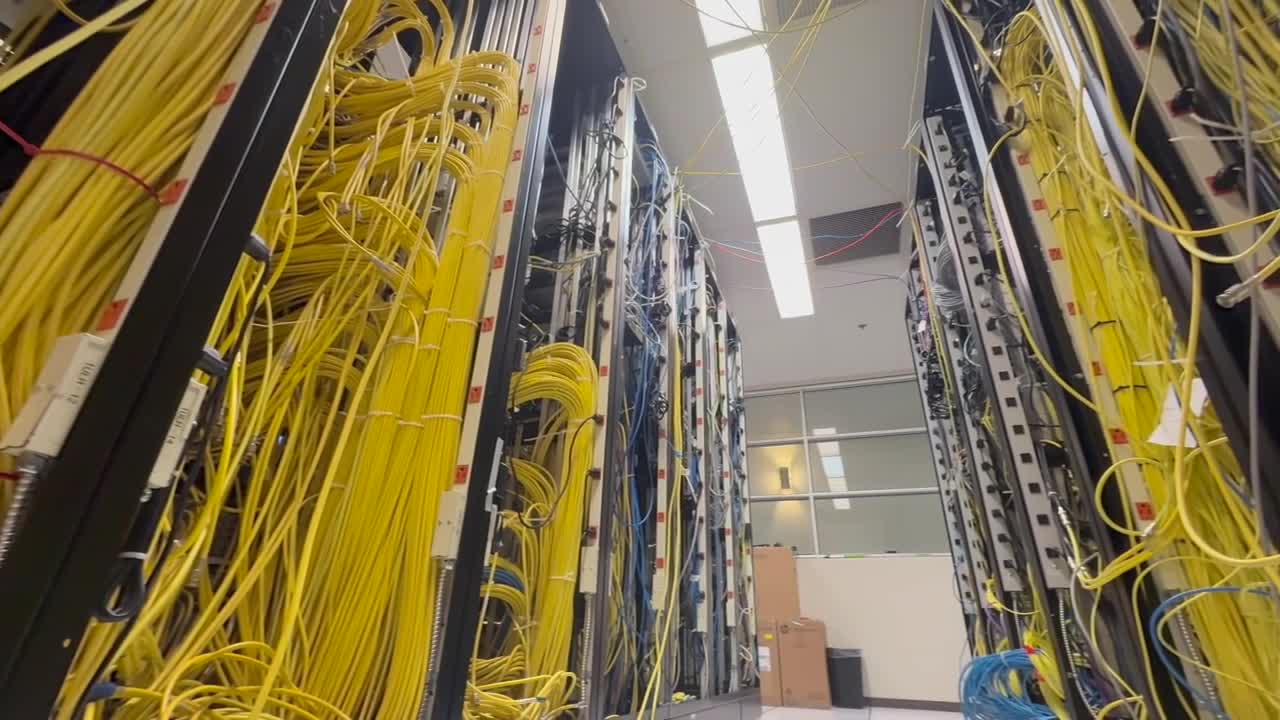PHOENIX — Maricopa County is already home to more than 125 active data centers, and more are on the way as Arizona’s tech economy expands at breakneck speed.
The Phoenix metro area has added 2.71 million square feet of new data center space in the last decade, making it the fourth-largest market in North America.
At Phoenix NAP, one of the Valley’s data centers, rows of blinking servers and miles of cabling don’t match the “cloud” image, but this is where much of the internet actually lives.

“This is where the internet starts to connect through this building,” said Ian McClarty, president of PhoenixNAP.
Security is tight. To enter, McClarty has to scan his eyes. Filming active servers is prohibited, part of strict protocols designed to protect sensitive data from both cyber and physical threats.
McClarty says plans are underway to add a new facility three times the size of its current building. The main reason is artificial intelligence.
“For the U.S. to remain competitive, we need more data centers to house this equipment that is very power hungry,” McClarty said.
AI tools like ChatGPT demand far more computing power than traditional web searches, using advanced processors that run constantly and consume massive amounts of electricity. Arizona Public Service (APS) projects that data centers will be the biggest driver of electricity demand growth over the next decade, according to its 2023 Integrated Resource Plan.
Startups riding the AI wave
That growing demand is visible at the AI Surfer headquarters in Scottsdale, a collaborative space where founders Dallas Clounch and Matt Proud want everyday people to explore AI and for entrepreneurs to get help building AI-powered products.
“This is a public space for everyone in Arizona to come in and learn about AI,” Proud said. “The more we can bring community together here, become more aware of it, they’re going to use it for their businesses, then the businesses that use it likely will become more successful, which means Arizona will be recognized for that.”

Zach Babiarz, who runs an AI automation company, says Arizona is rapidly becoming a serious player in tech.
“A lot of stuff used to be in California in tech, but I think Arizona is the next big tech hotspot,” Babiarz said. “I love that AI is expanding like crazy here.”
Community concerns over rapid expansion
The boom has sparked pushback from some Valley residents. At a recent Phoenix City Council meeting, dozens of speakers warned about the potential downsides of unregulated growth.
One could be exploding energy demands, with one Southwest Energy Efficiency Project representative saying Arizona’s power providers could soon be overwhelmed by the amount of energy needed to run the data centers.
“Staff’s excellent report showed 15 gigawatts of interconnection requests just in APS's territory, To put that in context, last summer APS's entire system peaked at around just over eight gigawatts. Of course, they won't be able to meet you that entire interconnection request, but it goes to show the scale of power needs,” Will Greene said.

Environmental and health risks were also raised.
“The City of Phoenix is committed to innovation and being a technology leader,” Mayor Kate Gallego said. “We’ve gotten international recognition for that. We also want to make sure we have best practices and that we put advanced technology in the right places.”
Several business and community leaders supported new zoning rules as a way to guide, not block, future development.
“The amendments create a pathway for thoughtful and sustainable growth and development,” said Ginger Sykes Torres of Local First Arizona.
Nick Wood, an attorney representing multiple data center companies, said the regulations provide “clarity, definition, and development standards” that the industry can work with.
The council ultimately approved rules requiring new data centers to meet stricter noise limits and maintain set distances from homes and high-capacity transit.
Still, industry leaders like McClarty stress that Arizona’s role in the AI revolution depends on adding more capacity.
“We need to do this. This isn’t a want or desire,” he said. “Otherwise, other countries will outpace us on innovation, and we’ll be left behind."
This story was reported on-air by a journalist and has been converted to this platform with the assistance of AI. Our editorial team verifies all reporting on all platforms for fairness and accuracy.






